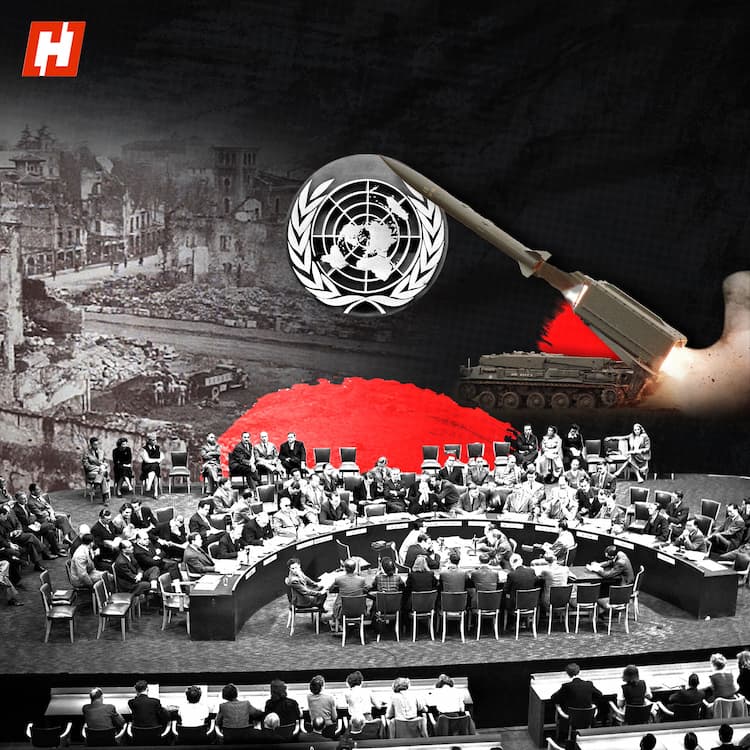Iran is a country besieged. Eight days into its escalating conflict with neighbour Israel, the world woke up to news that the normally patient and understanding Trump took the unprecedented step of bombing three of Iran’s nuclear sites.
In a press conference, Trump hailed the strikes as a “spectacular military success” that “completely and totally obliterated” Iran's key nuclear enrichment facilities.
Calling Iran “the bully of the Middle East”, Trump threatened that “future attacks will be far greater and a lot easier” if Iran doesn’t “make peace”. Taking it a step further, US President Donald Trump put out the possibility of regime change in Iran.
In a post on his social media platform Truth Social, Trump asks “If the current Iranian regime is unable to make Iran great again, why wouldn’t there be a regime change?”
All bets are off now. There's no guessing what Trump would do next to force Iran's hand.
In this fight, the US is clearly the ‘bigger guy’. Faced with such overwhelming aggression, Iran is doing what any other ‘little guy’ would do -- call for backup.
On Sunday Iranian Foreign Minister Abbas Araghchi left for Russia for an urgent meeting with President Vladimir Putin on Monday. Calling Russia “a friend of Iran” Araghchi declared that the two nations “enjoy strategic partnership”, ones that “always consult with each other and coordinate positions".
How one conducts warfare might have changed over time, but one guiding principle remains true -- the enemy of my enemy is my friend.
20-Year Strategic Partnership
So with that in mind, let’s find out what this “strategic partnership” actually means.
Russia has a long history of cooperation with Iran. One of the earliest examples of this -- Russia helping Iran build its first ever nuclear reactor at Bushehr in the south of the country.
Since then there have been many examples of the two nations scratching each other’s backs. When Russia went to war with Ukraine, it was Tehran who supplied Moscow with Shahed military drones to strike Ukraine. When Iran wanted help with its civilian nuclear program, Russia was there to back it against western opposition.
Making it formal was thus the natural next step.
And so in Jan 2025, just days ahead of Trump’s swearing-in as POTUS, Russian President Vladimir Putin and his Iranian counterpart Masoud Pezeshkian signed the Comprehensive Strategic Partnership treaty. By May, both nations’ parliaments had ratified the 20-year agreement.
Putin had dubbed it as a “breakthrough document” whilst Pezeshkian said it would give a fillip to the relationship, and open new vistas in several spheres.
The treaty spans forty-seven articles, covering almost all major areas, including trade, energy, and most importantly, security.
Security
Though the agreement includes provisions for both countries to counter shared threats, Russia isn’t sending troops to Iran anytime soon. That’s because the agreement does not directly or explicitly talk about a mutual defence clause, like NATO’s Article Five. Rather it relies on military cooperation and exchange.
For context - Article 5 of NATO, officially known as the ‘collective defence’ clause, established a mutual defence mechanism, among all member states. Simply put, an armed attack against one or more NATO members shall be considered an attack against them all.
Geopolitical commentators suggest that skipping the mutual defence clause might be a tactical move to dodge Western scrutiny.
Instead, the two countries will develop their 'military-technical cooperation' by taking part in joint exercises, sharing intelligence and the like. Furthermore, neither side will allow its territory to be used to support separatist movements or actions threatening the other's stability and territorial integrity.
Energy
Russia and Iran will promote cooperation between their energy companies and encourage investments in projects for developing oil and gas fields.
Moscow and Tehran have already reached a deal on 55 billion cubic metres of Russian gas supplies a year, though prices are yet to be agreed. Iran in turn signed a $4 billion agreement with Russian companies to develop seven Iranian oilfields.
Nuclear
Both parties were set to work on long-term joint projects on the peaceful use of nuclear energy including the construction of nuclear power stations. But this was well, before the US’ surprise attack.
Trade
Under this treaty, both sides will work together to create a modern payment system that is independent of third countries, with settlement in national currencies. Additionally, they will strengthen direct interbank cooperation and promote their national financial products. In essence, this allows both Iran and Russia to evade US-imposed sanctions.
Araghchi decried that the US “in the midst of a process to forge a diplomatic outcome, betrayed diplomacy”. That the US “was supporting the genocidal Israeli regime's launch of an illegal war of aggression on the Iranian nation”. He reiterated that “Iran deserves all options to defend its security, interests and people".
After the US 'betrayed diplomacy' and discarded nuclear talks with surprise attacks on Iran, it's a true test of Tehran's 'friendship' with Moscow. Will the Iran-Russia strategic partnership challenge the US-led western ideological axis?
For now, we’ll just have to wait and watch.





